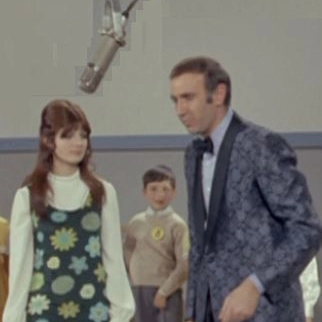Pippo Baudo's first success was in Milan with Settevoci: the applause meter, the theme song 'Donna Rosa' and many future big names

Milan, August 17, 2025 – The Rai program that launched Pippo Baudo on TV was produced by Rai at the Fiera 2 theater in Milan. It was Settevoci, the first real launching pad for the Sicilian presenter, destined to go down in TV history. He passed away yesterday, August 16, in Rome at the age of 89 at the Policlinico Campus Biomedico in Rome.
The broadcast debuted on Sunday, February 6, 1966, at 6:15 PM, as regularly listed in Radiocorriere 's schedules for the "Afternoon on TV" slot. For years, the belief spread, fueled by Baudo himself, that the first episode aired only because a reel of the TV series Rin Tin Tin hadn't arrived in time. In reality, it was later proven that the famous American TV series starring a dog didn't air on Sundays, and the Corriere d'informazione of February 5, 1966, featured an introductory article titled "Seven Voices with Pippo Baudo's Quizzes. New Program for Sunday Afternoon": the broadcast was therefore scheduled.
The idea of the program and the first episode
Rai decided to experiment with a new format on Sunday afternoons, a time slot where viewers were numerous but not fully satisfied with the sports offerings. Between kids' TV and football commentary, there was almost an hour of programming left, usually devoted to low-profile dramas . Hence the decision to offer a music quiz show, following in the footsteps of Mario Riva's Musichiere.
Each episode featured seven singers : two debuting, four contestants, and one guest . The first broadcast featured, in order of appearance, Mario Zelinotti and Rita Monico as debutants, Lalla Castellano, Vanna Brosio, Claudio Lippi , and Gianni Mascolo as contestants, and Betty Curtis as guest.
Musical quiz and the applause meterThe singers were paired with a spectator who had to solve musical quizzes. Each correct answer allowed the singer to advance two steps; the two contestants with the highest scores advanced to the final, decided by the audience's applause, measured by an applause meter . The winners, spectator, and singer received a gold token and automatic access to the next episode. After the first episode, the Corriere d'informazione of February 7, 1966, published an unflattering review, calling Baudo a "pale successor to Mario Riva" and criticizing the applause meter. In reality, Baudo was able to make the difference and quickly win over audiences and critics. The first season concluded on June 26, 1966, after 20 episodes , all broadcast from the Fiera Milano theater, eight more than the 12 originally planned.
From the afternoon to lunchtimeThe program played a key role in the launch of the new 1:30 pm newscast, inaugurated on January 15, 1968. From January 21 of that same year, "Settevoci" moved to the midday slot, from 12:30 pm to 1:30 pm , with repeats in the evenings at 10:15 pm on Canale Secondo. Sunday afternoons were instead taken up by the program hosted by Lara Saint Paul, "Quelli della domenica," initially conceived with the title "Gli amici della domenica." The fourth season of "Settevoci" debuted on October 6, 1968, with the evening version moving from a simple rerun to a complement to the midday episode. At the end of that season, Baudo announced the closure of the program, but a fifth season did take place, from January 18 to June 28, 1970, with guests such as Caterina Caselli, Anna Moffo, and Nicola Arigliano. The broadcast ended with a very high rating: 78 for the midday edition and 81 for the evening edition.
Music Biggies and Donna RosaIn five years, Settevoci helped launch figures destined to become protagonists of Italian pop music, from Orietta Berti to Massimo Ranieri, from Al Bano to Marisa Sannia, up to Franco IV and Franco I, Gian Pieretti, Rossano, and Mario Tessuto. Unfortunately, no complete episodes remain in the Rai archives today, only the animated theme songs, including "Donna Rosa" and "W le donne," written by Baudo himself.
Il Giorno




